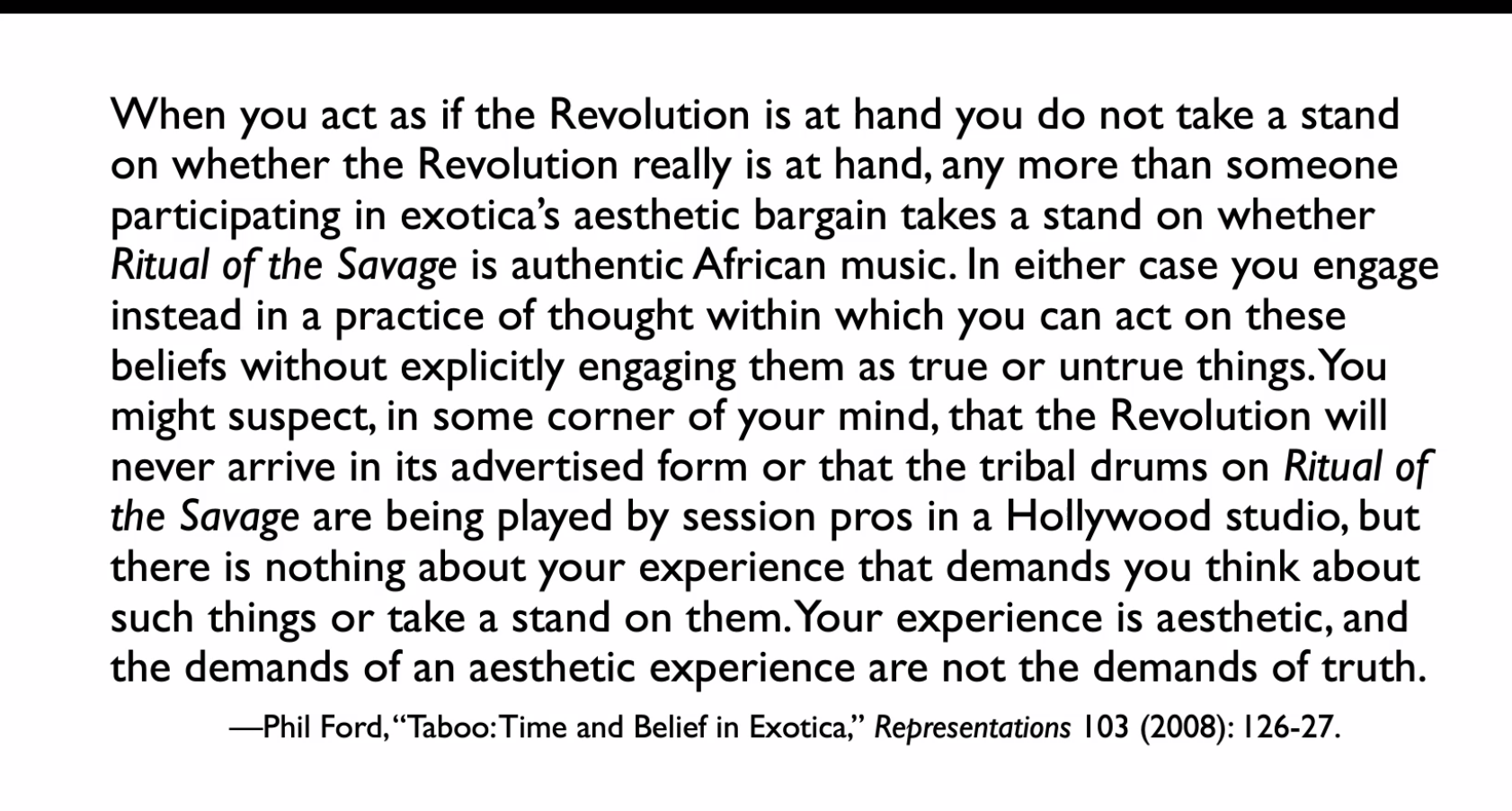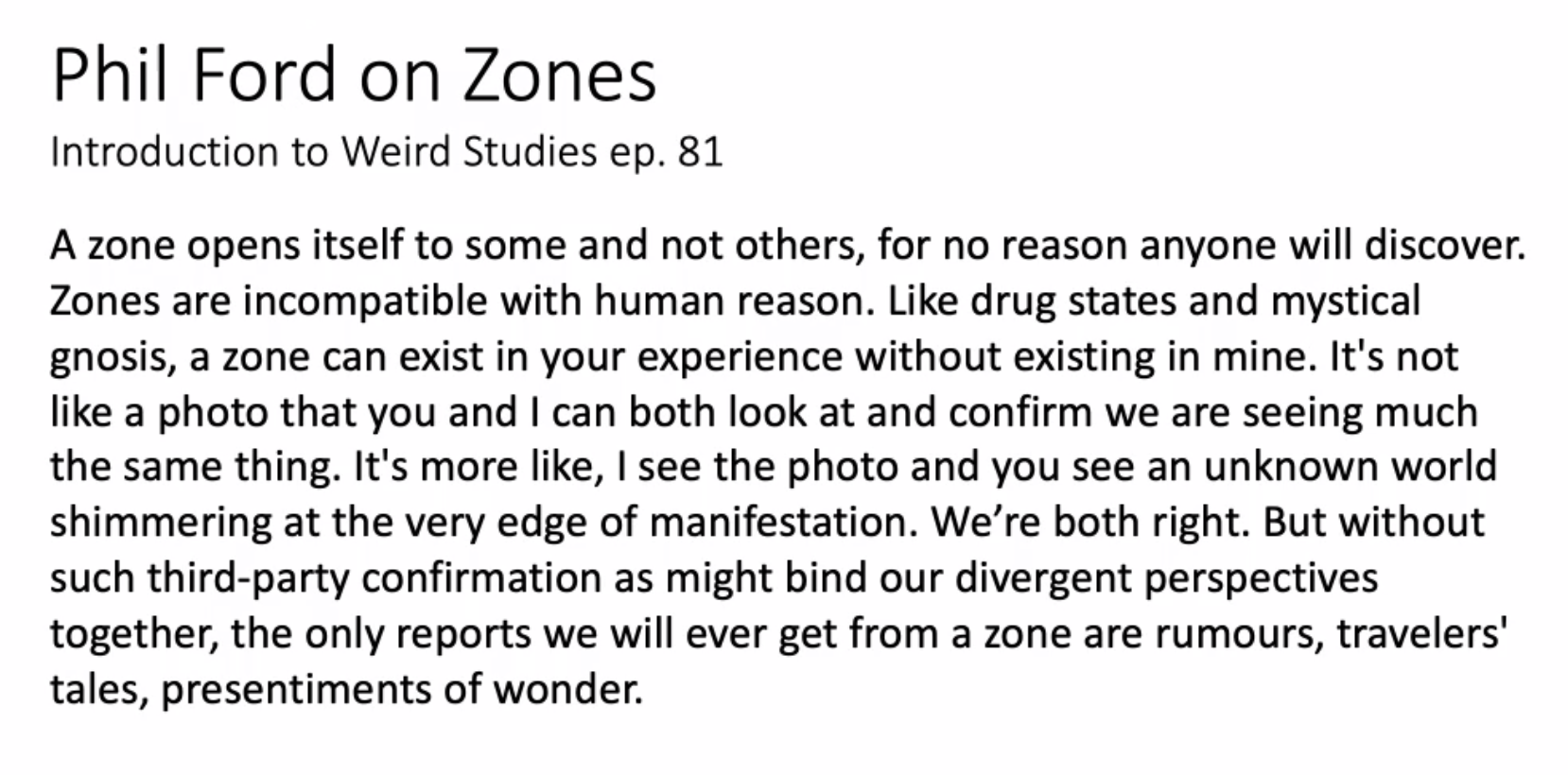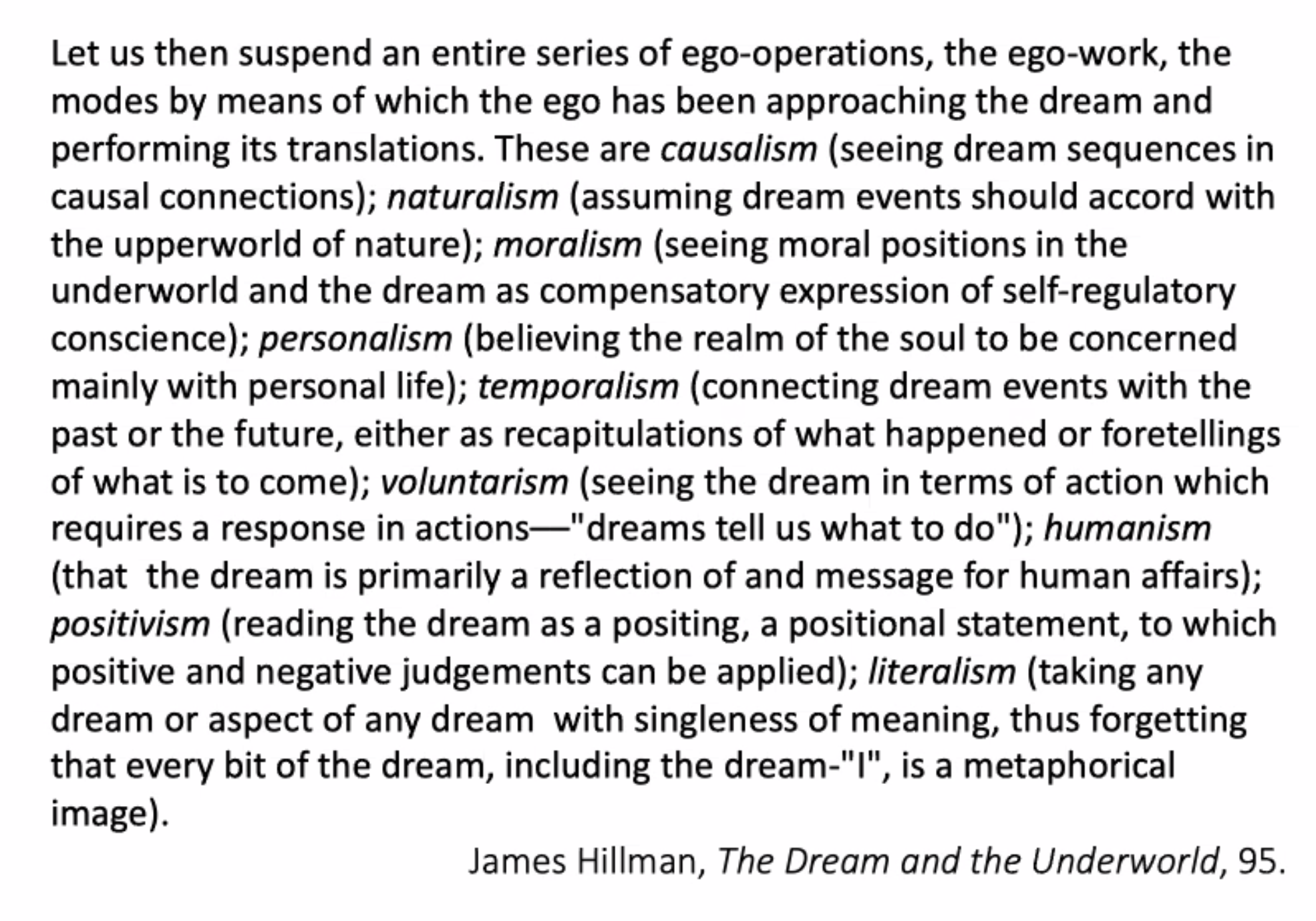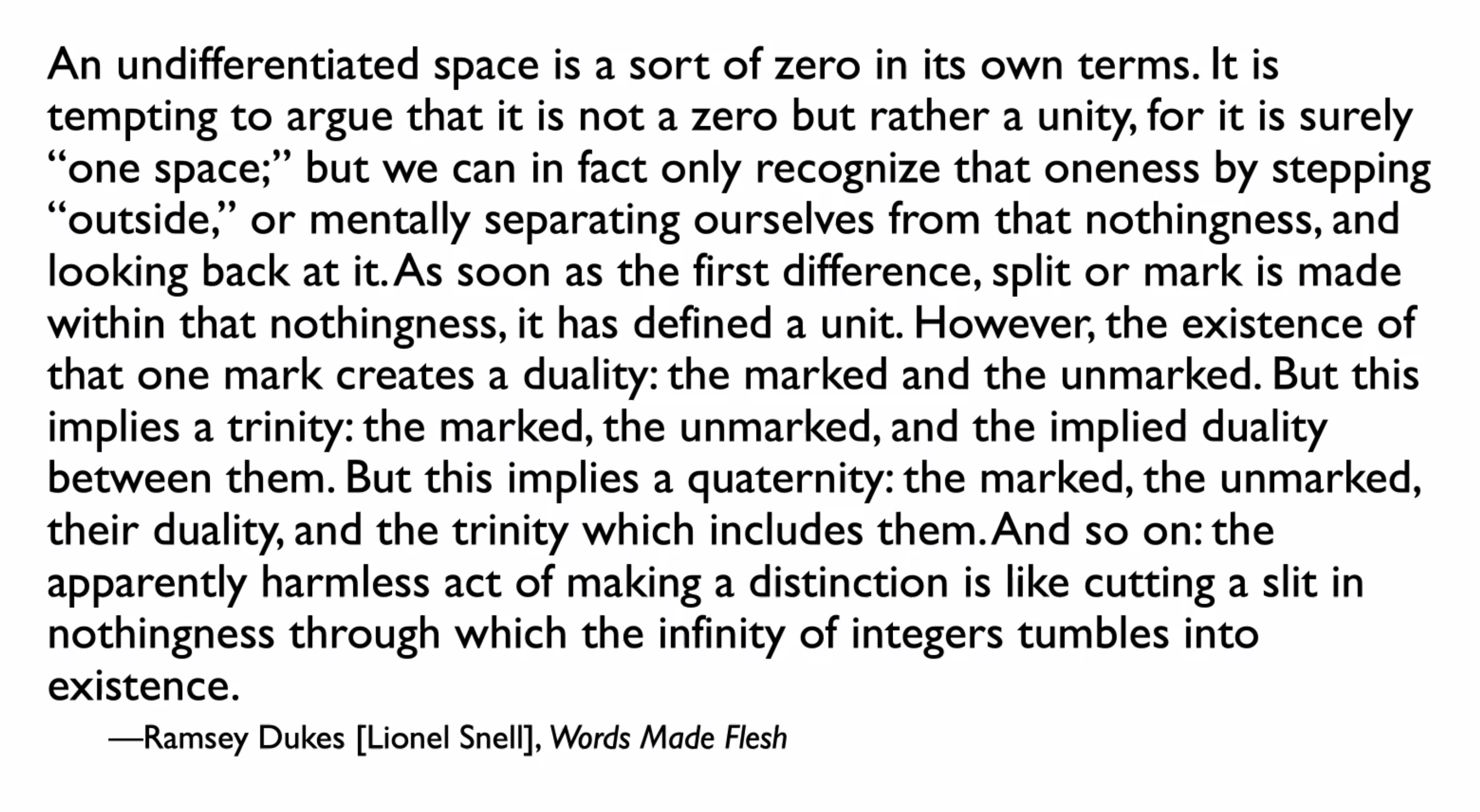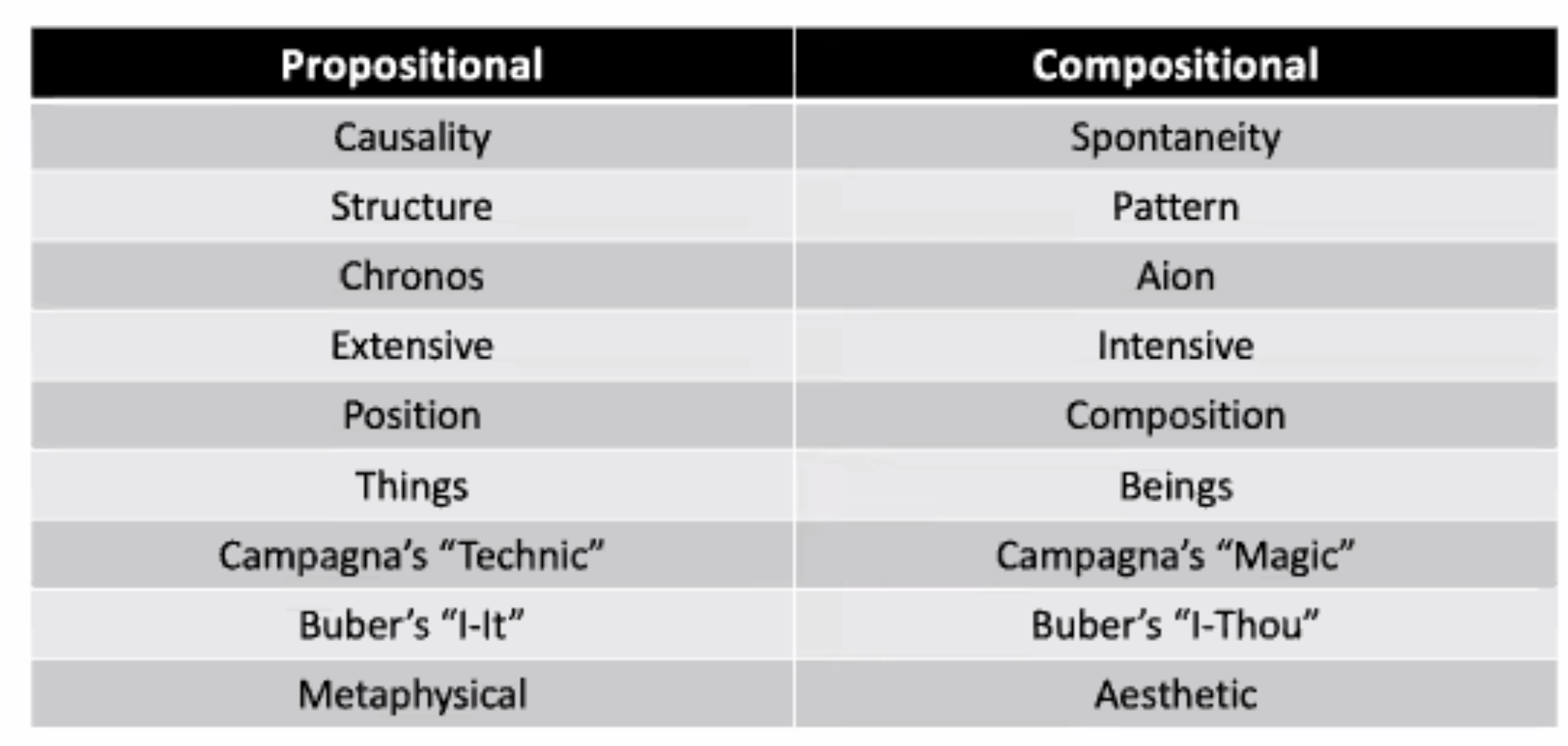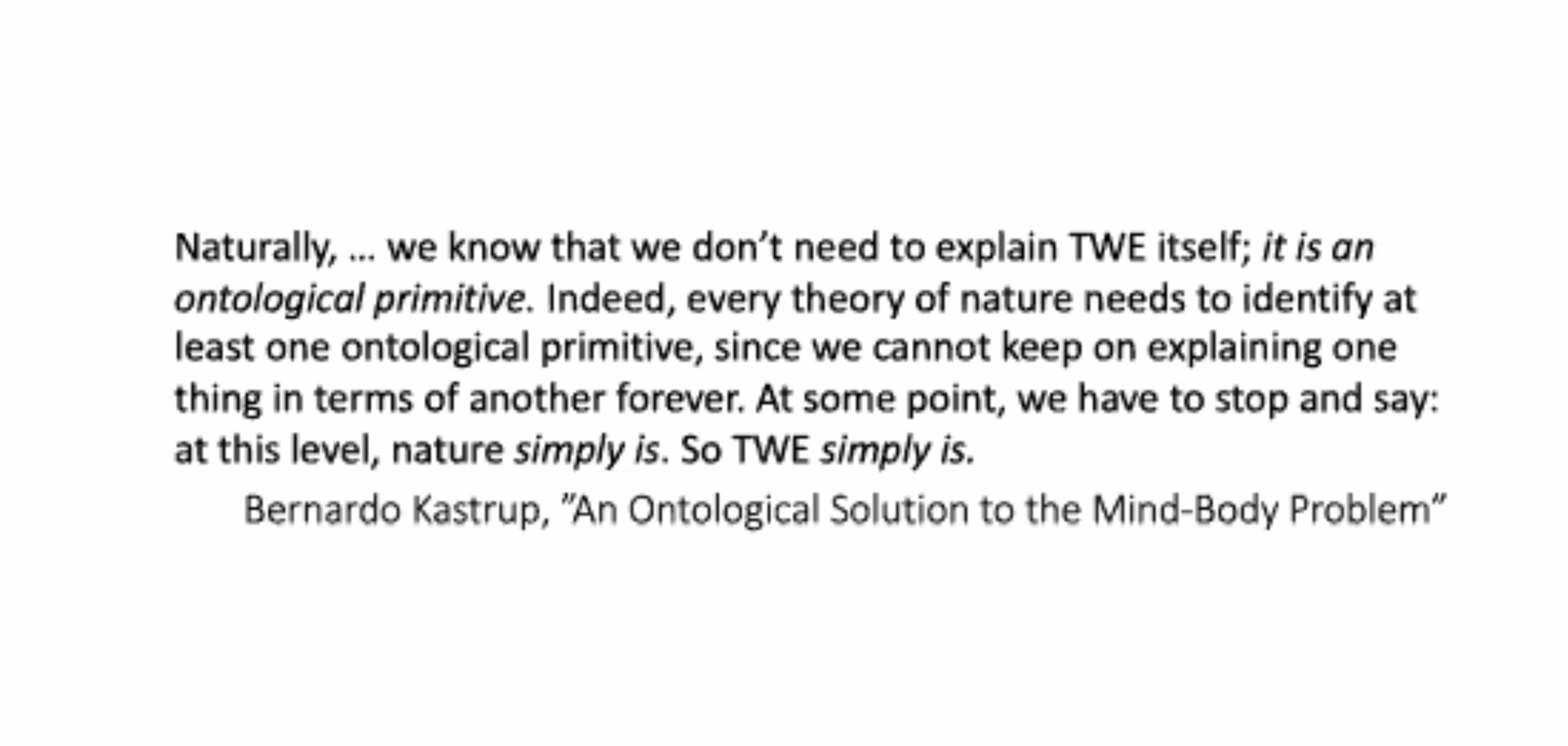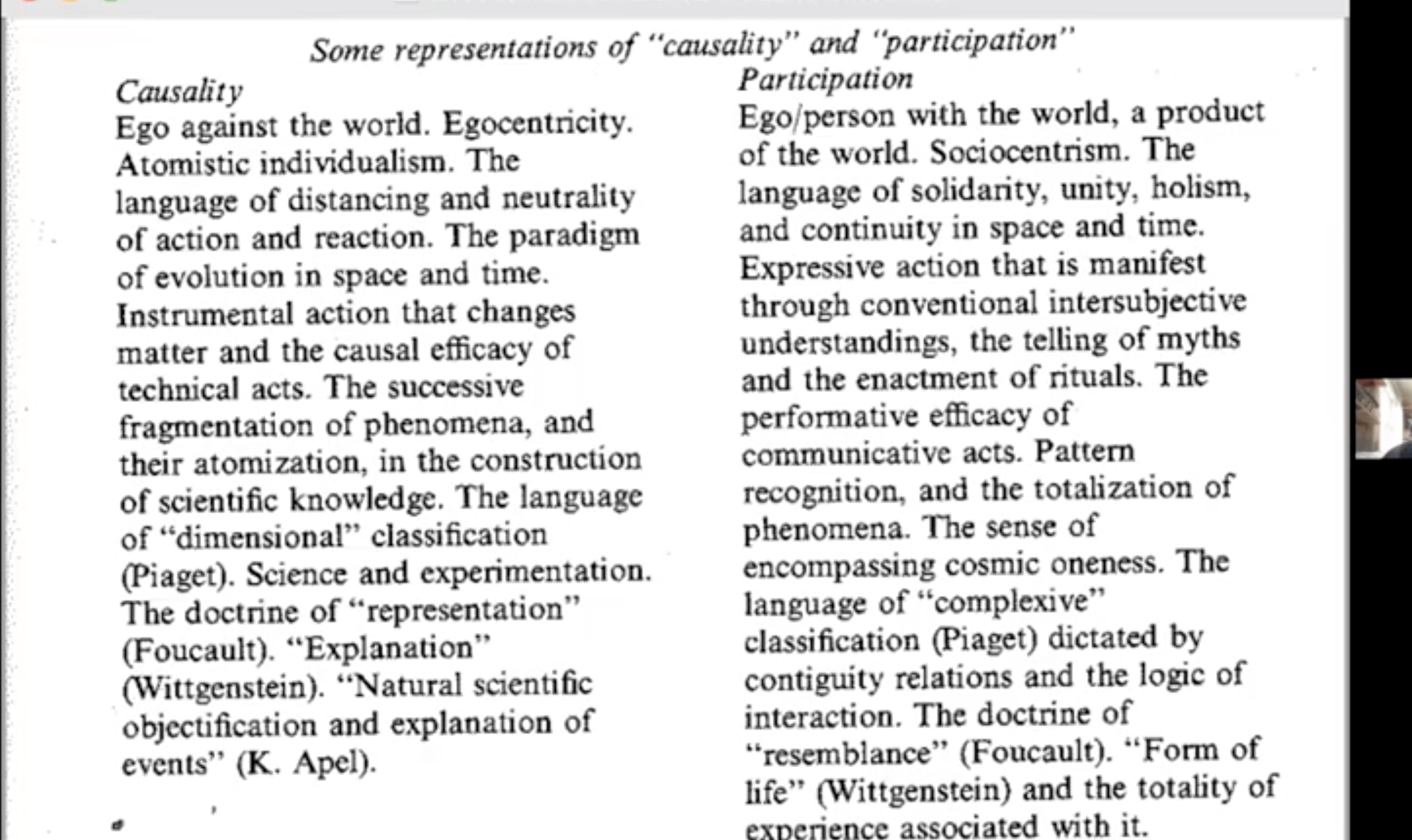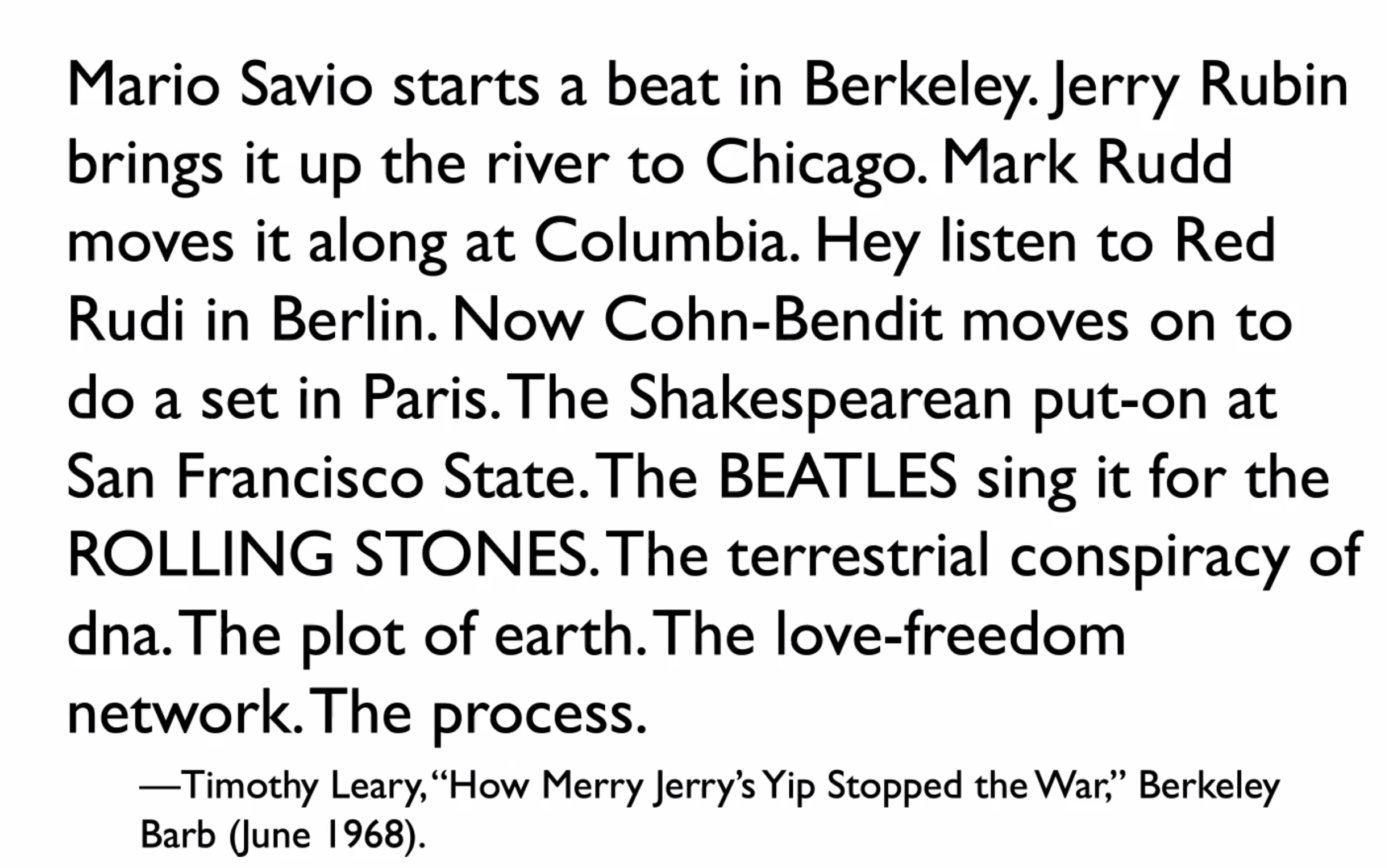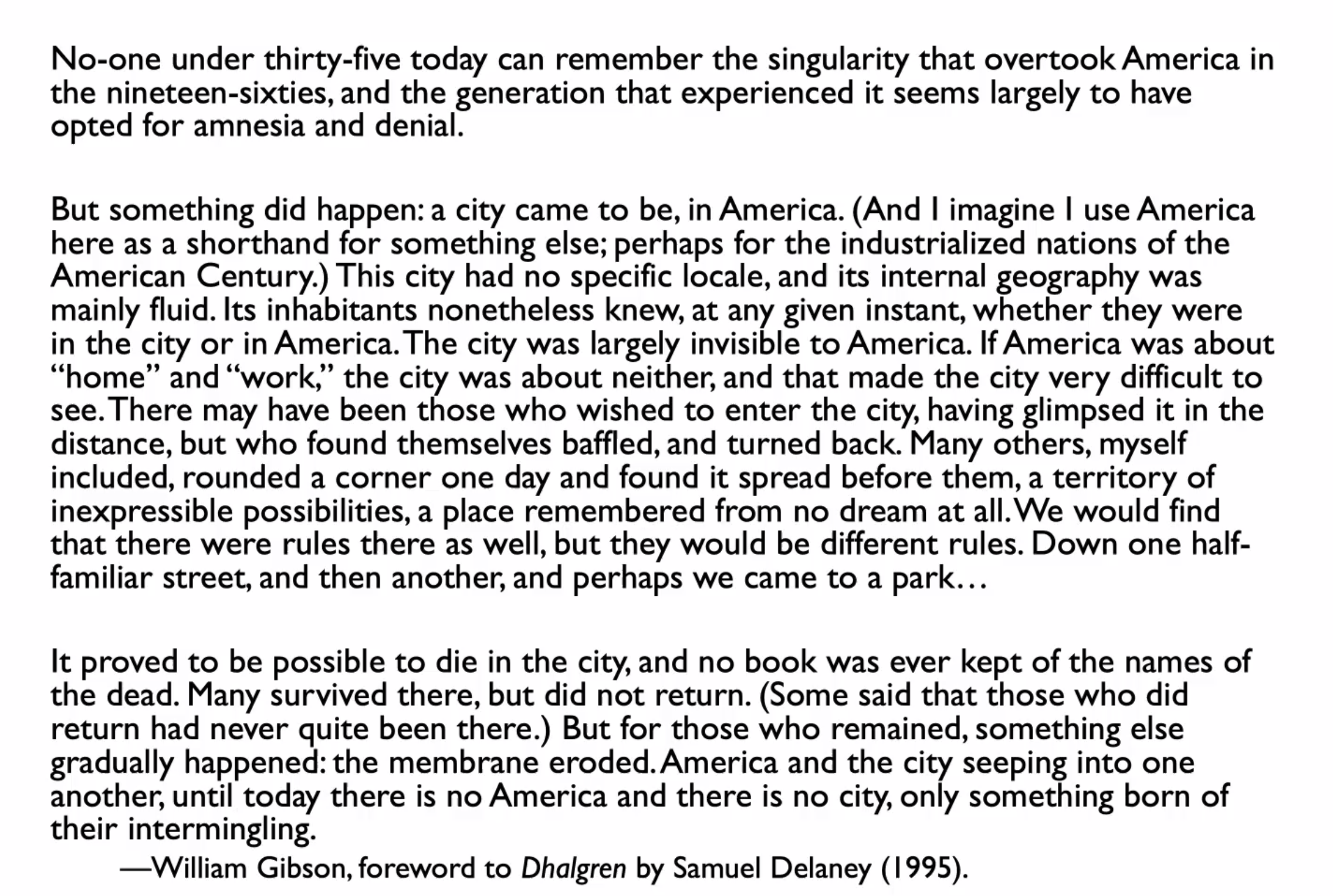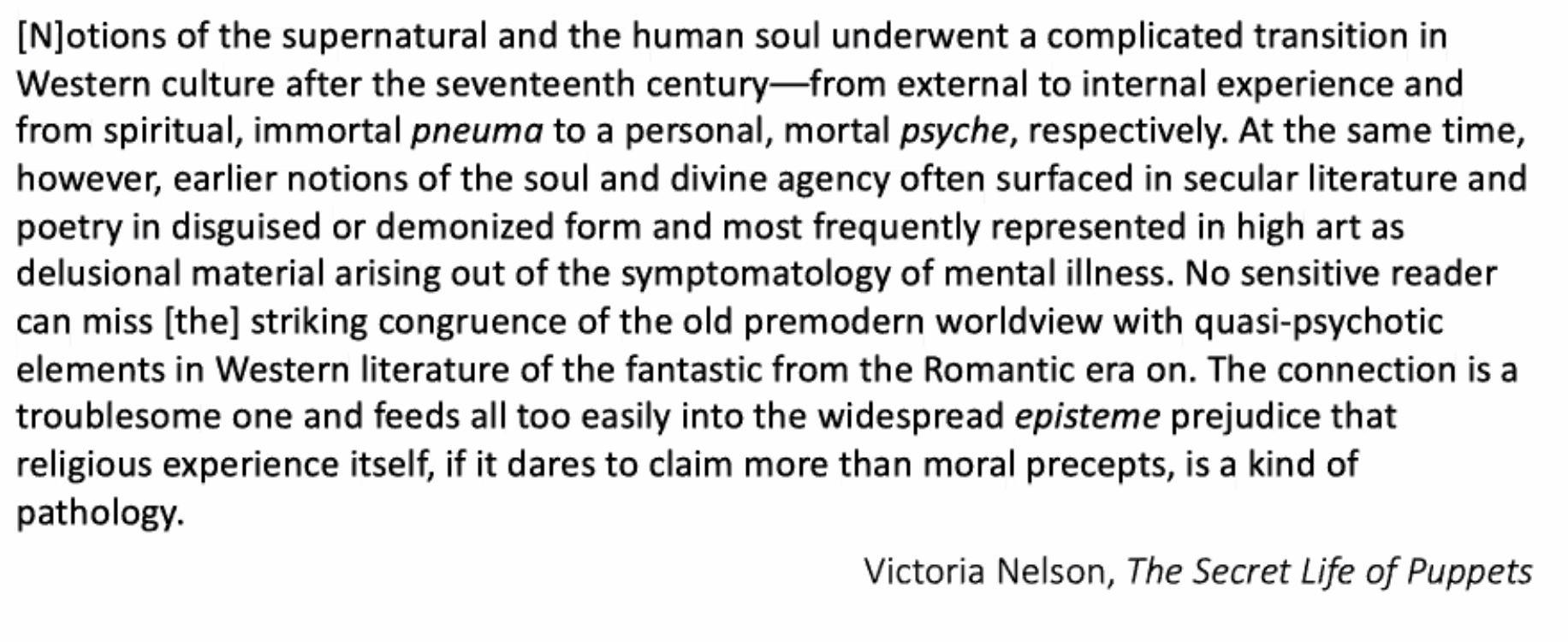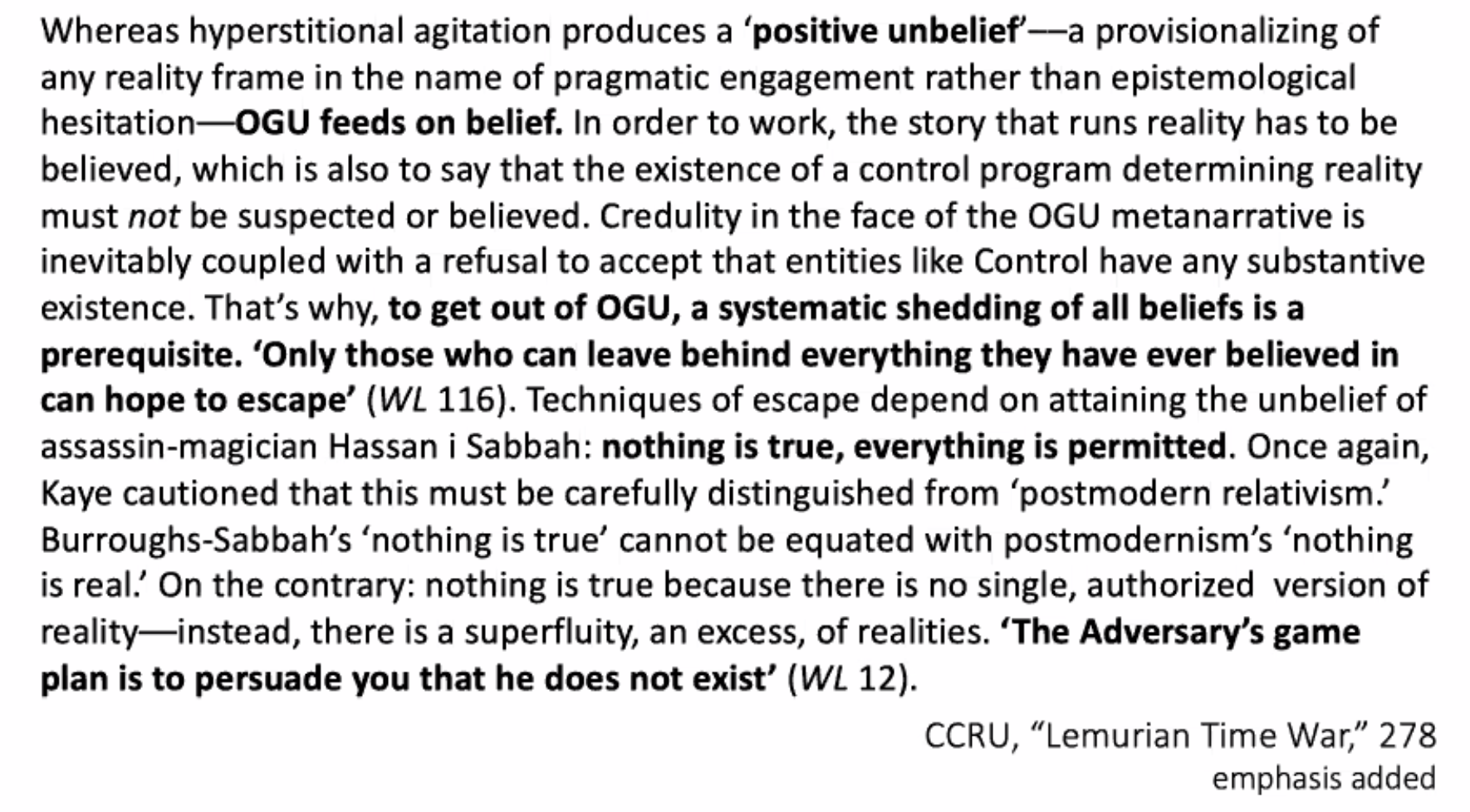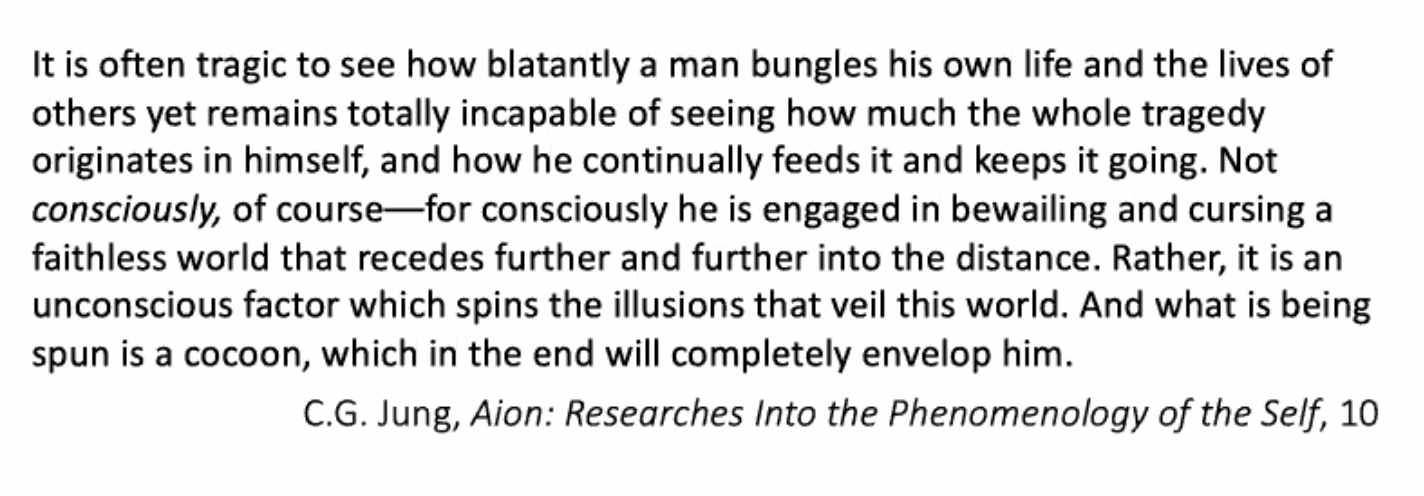Weird Studies/Courses/Weirding
25 Jun 2024 - 14 Mar 2025
- I went through Weirding, an online course presented by the Weird Studies hosts. Disorganized notes below
Session 1 Trash Stratum
In this class, we consider how we might encounter the divine (in whatever guise) as it manifests in exotica music, professional wrestling, avant-garde Happenings, and other cultural forms. And we will consider the all-important pro-wrestling principle of kayfabe: maintaining and protecting the Inside of a divine encounter from a hostile and uncomprehending Outside.
- Material:
- Maria Montez paper, exotica paper
- Notes
- There are 80 people here! Can't be too interactive, which is probably fine
- Similar ideas?: bulldada, Omniorthogonal: Mr. Burns, Emperor Norton
- VALIS: initiatory artworks, like Parsifal
- false dichotomy between personal and universal interpretations...oh well.
- trash stratum as escape, and a version of magical hermeneutics? (Aristotle 4 causes + fifth cause, diviners cause)
- Dick offering third position: value from human and non-human beings
- He's trashing camp and The Room (despite never having seen it) – charity is required. He rants against those who put themselves above the artwork, you must get down on your knees before it...doesn't like the "so bad its good" pose. OK – I don't care that much... asymmetrical consciousness ...
- Passionate identification vs. ironic detachment
- Artworks are people too (and should be approached with I-Thou)
- The nature of pro-wrestling: blur the line between fiction and nonfiction.
- Kayfabe – the great arcanum of all magic. Commitment, you weave your story into the world. Works (staged) vs Shoots ("real")
- Andy Kaufmann! (Laurie Anderson stooged for him, didn't know that)
- Uh oh Edge.org (Eric Weinstein on Kayfabe)
- The mystery is ontological not epistemological.
- Ramsey Dukes How to see Faeries
- Roger-pol ? Astonish Yourself – Magic as empirical science
- If magic is kayfabe – the ability to maintain a fiction to the point it becomes real – I understand why Emperor Norton is so revered by the Discordians Emperor Norton | Discordian Wiki | Fandom
- Awakening is an accident, and mediation makes you accident prone. – Baker-Roshi
- Office Hours
- Simondon on technology
- Artists are good diviners, they see a future for objects...
- Charnel grounds and filth
- Machen and evil (Have not read him)
- JFM: Deleuze: all that returns is noble, so no real evil (eh I want to argue)
- PF: Arousing of the bodhi-mind, non-discrimination. does not mean "don't like anything more than anything else" – don't address under-the-abyss problems with above-the-abyss techniques.
- Crowley's life as kayfabe (Or David Bowie self-creation project)
- dada as erasing line between life and art (?) Trump as ultimate
- Crowley acceptance of his fate
- Musil ? Decadents – were they leaning into the dark to affirm the light...
- Logos appears. when you fuck around and find out. John Cage answer to why there is suffering: to thicken the plot...Henry: I have transgressed, now I am back...blah.
- Emanations...the New...Life ... OK I can vibe with this but I can't (yet) talk about it.
- Acausal or hyperchaotic thing (seems to be a reference to some early convos that I haven't heard)...
- Failures of divination (But its all that for a skeptic like me).
- JFM: spirituality as learning about those parts of yourself (or reality) that you reject...A defence of traditional religion – empirical systems for exploring the imaginal world.
- Daniel at 6:20 or so...should review.
- Was going to raise the issue of the homeless – human trash – but not sure it was going to fly. Might be too real, and I have no business making people feel guilty.
- I didn't bring this up in the discussion because it is not fun or spiritually fulfilling, but the juxtaposition of trash stratum with morality made me think of a glaring social problem where I live (San Francisco) – the homeless, essentially people who society has relegated to the trash stratum.
- Jesus, I assume, would be at home with these dregs of society, but the good bourgie citizenry (myself very much included) avert our eyes. We can't look at these people, there need is too great, we have to ignore them most of the time.
- OK somebody else did
- Thanks for posting this. I was thinking along similar lines during the office hours, but I'm leery of getting too political or moralizing in these discussions. We have created a class of people who are basically garbage (in the eyes of society) and because we can't deal with this fact honestly, they pile up in the streets (esp in San Francisco), a constant reminder of social failure. Jesus, I assume, would be at home with these human dregs, but the good bourgeoise citizenry (myself very much included) avert our eyes.
- Want to draw a line between trash stratum and repression, seem obviously related.
Session 2 The Zone
- see Weird Studies/Stalker and Weird Studies/JFM on Zones
- Reading the "Daimonic Reality" paper and barfing a bit
The Otherworld is always imagined as beginning at the edge of our known world....Scientism recognizes no Otherworld, but, as I intimated in my 'little history of daimons', daimonic reality has a way of subverting it. Thus scientism constructs its own literal versions of a transcendent and and immanent Otherworld. The former appears in the weird models of the universe articulated by astronomers and cosmologists; the latter appears in the speculations of nuclear physicists.
- Man does that sound confused. It goes on, revealing a stunning ignorance of what science is about. It's like Tao of Physics but even stupider, electrons are like fairies! or UFOs!
The subtaomic Otherworld has its own elegance and a certain stark beauty, as the physicists are keen on emphasizing; but iut is grey and meaningless compared to the world William Blake saw in a grain of sand.
- Well buddy, you are the person who decided that physics is a version of your Otherworld (an inferior one I guess). I don't really see them as being the same thing or in competition for my soul.
- 3rd reading
the Zone is usually a singular, often unmoving place of anomalous materiality. Importantly distinct from magical phenomena themselves, “[t]he zone is the region, spatial or temporal or both in which the phenomena may occur;” it is an “‘order’ that is outside order.”
- Refs: Notes on the Zone Concept (i) – Centre For Experimental Ontology (link in pdf is wrong)
Indeed, it is my contention that Zones are instances where the noumenal mixes with the phenomenal; where the Outside intrudes on the Inside. The beaches of Kant’s Island of Reason are littered with constantly evolving and changing tide pools.
- Detour into Kant.
systematization and standardization of the human experience in the understandable world of the phenomenal is our treasured Inside...Furthermore, this set of rules that organize our experience of space and time “consistently and predictably” produce a homogeneity, a sameness that determines what Amy Ireland calls our “anthropomorphic regime.” Such a regime, she goes on, creates a sense of normalcy and harmony amongst us insofar as everything is “ordered, familiar, comfortable, and homely.”
- Wow cites Steve Harrison and Paul Dourish , “Re-Place-in Space: The Role of Place and Space in Collaborative Systems,” in Proceedings of the 1996 ACM Conference on Computer Supported Cooperative Work
- The Talk
- "comprehensively unsystematic" (reading from a text, eh)
- Can a time period (he sixties) be a zone?
- JFM OTOH wants to consider Zones as an objective thing, independent of human subjectivity.
- Twilight Zone! Yes!
- Blake double vision. Superior to single vision. Yeah I suppose. Imaginal things are objectively real, as indpendent as the thistle at least (eh).
- Coleridge: subjective imagination vs primary imagination (latter is as real as the physical world). Sufi mundum ? More reality when you see the thistle an old man. Eh.
- Zones as hauntings. Where the weird manifests into reality.
- de Chirico another good example
- a zone where imaginal beings pitch their tent in our world (or vv). Charles Taylor disenchantment.
- Line that people keep experiencing daimons whether or not they have been banished...yeah I suppose. "minded entities that are on a level with the human yet not human".
- 44% of American believe in ghosts...argh this is way too paranormal-religious for my taste.
- liminality an example of bait-and-switch...
- he seems to be making a case for the objectivity of the imaginal...this seems misguided to me.
- cite of Mark Fisher Weird and Eerie. Eeriness, the feeling of being watched by something alien...or being such a watcher. F2F with the nonhuman.
- Ep 59 on Walking addressed how to find zones. Exercise: go for a walk, with no destination or podcasts. look for a "cursor", a tug in a particular direction.
- He hates "intersubjective" because it implies an objective (?) Art exists independently of humans (I still think this wrongheaded).
- To me, something seems wrongheaded about the assertion than daimons etc are objectively real. Let's grant that they are real in some sense – they generate real experiences, if nothing else – but they aren't real like a physical object is real, or we wouldn't think of them as interesting – they'd be normal, not paranormal. So what is their reality like? It's not objective or subjective, but some third type of being.
- Wow PF picked up on this and read it, I'm kvelling
- Followup (unsent). Subjective and objective assume a certain cosmology (or constitution, in Latour terms). Zones and daimons fuck up the boundary, I don't think it's right to think of them on either side (purely real and objective or purely subjective)
- Try again: I think this boils down to a (false) dualism, that something is either objective (eg, natural, physical, has its own existence apart from observers, measurable with scientific instruments) or subjective (all in the head, culturally constructed, basically made up and thus could easily be made differently in someone else's head).
Session 3 Art that looks back
- Cool, two podcast eps I haven't listened to yet Weird Studies/Duchamp and Weird Studies/Talking the Walk
- Buber, should link my I and Thou Ribbonfarm essay. Or do I, how about listening to their take first? They are talking about finding thous in the inanimate, my essay is about how it's tough even with the animate.
- No mention of Sloterdijk/Rilke ??? (comes up later)
- Notes on Wastiau Two Congolese Masterpieces
- Looking at art as "Tabwa" rather than the product of individuals is rather parallel to feeling that "all asians look alike" – somewhat defensible due to cognitive limits, but also obnoxious and colonialist. Good to be remembered that there were individual minds at work here.
- Notes on Lecture – The Artwork Looks Back
- Komar and Melamid, Healing Power of Art (not)
- He's denouncing his youthful cynicism (I guess I agree but I don't care about academia, trendy or otherwise)
- quote from Jodorowsky, Psychomagic
- Assigning agency to art (from Duchamp episode, "this music loves me")
- He is not sure what he meant – that's good, honest
- Elkins, people who cry at paintings
- Mumbo Jumbo, mutafica repatriazing stolen art works
- Uchiyama, Just Bow
- PF says I and Thou is full of Zen shit
- Don't put such tight conditions on personhood
- It is the borderlessnes of being that comes through an encounter with art.
- Burning Man art kind of solves the museum problem ...
- Nathan showed that Alex Grey book on art.
- Robert Irwin: Seeing is Forgetting the Name of the Thing One Sees
- Office Hours
- JFM: his movies were more real before they were made (when he was "wrestling with the angel")
- The book they are working on has its own telos
- talk of magic and I feel weird and inadequate
- David J does gemerative synth music and finds a thou in it. Modular synth guy, which is the cool thing.
- Art (the physical thing) is a third think in between artist and The Spiritual Thing – art is the actual relation.
Session 4 The Dreaming
- Reading Borges piece on dreams – actually pretty vanilla for Borges, but OK
- The idea that there is a single dreamer. See I Am You
- Also made me think of Chuang Tzu story about the dreaming butterfly.
- Lecture
- last week – artwork as imaginal being
- before that - zone as habitat for imaginal being, trash stratum
- "imaginal" – nonhuman intelligence
- He is against dreams as trash (GC theory).
- psychoanalysis
- Dumpert quote – are people really that anti-imagination or anti-dream? I mean that was satirized in Hard Times but most people today give at least lip service to the importance of imagination.
- "our attitude today" is that imagiantion and dream are epiphenom of the "real" world and not real in themselves.
- "objective dream" – he means the dream as it is, before interpretation (not clear that means anything. Cats exist whether you perceive them or not, dreams – well, no).
- Dreams present themselves as encounters (agree with that), thus anything we encounter is not us.
- dream ego and waking ego aren't the same.
- the fragmented nature of dream recollections is evidence for the reality of a larger world that they are glimpses of
- we recognize dreamlikeness in some films (He didn't mention any, but Lynch and Tarkovsky come to mind)
- Hillman, dream world is underworld (death and the past)
- Why How What Who Where When
- Dream is how immaterial beings clothe themselves in material garb...i like that...
- Bergson dream theory (1901 or so)l He believed that memory was total (wrong).
- 6pm explicit about how imaginal is real
- Hm the problem is that listening to other people's dreams is boring.
- western philosophy as sufferiing from skepticism to the point of insanity.
- PF snarking on computational models of mind, pretty fairly actually.
Section 5 Diviner's Time
- Sources: Weird Studies/Diviner's Time and Weird Studies/I Ching
- The lecture
- He's going to talk about Wagner's Ring Cycle – it is structured by Diviner's Time. The Slit in Nothingness
- Mahler's ambivalence about Wagner – two truths that must remain in dissonance (man vs. music)
- The Ring as cosmic McGuffin
- Alex Ross book
- Moving between keys implies agency and being; the single E-flat chord in the opening is before being, above the abyss.
- Ref to Laws of Form, nice. How do people know that book?
- Wagner palled around with Bakunin? Learn something new ...
- Wagner's encounter with Schopenhauer (and hence Buddhism) – "all things go their different ways / you can alter nothing"
- JFM: Leitmotif as Platonic form, Ulysses as making the mundane transcendent.
- P Craig Russel did a version of the Ring...highly recommended
- Office hours
- Ring Cycle Tarot!
- Diviner's time has a feel, moments befall in a certain type of way, a certain flavor of eventfulness...
- a certain formalized mechanism – the feel of time – time that has aspect of mind but is not just me....divinbation as a black light for seeing this higher temporality
- Jaci: Science, JFM: Origin of Species is a Wagnerian book.
- Jacob Foster science vs scientism – yeah ok maybe.
- Wagner elucidates divinatory in all art, some modern stuff occludes that.
- JFM mentioning his art theory (artifice short-circuits interpretation, hides the real mystery)
- counter-initiatory texts, things that steer you away from initiation.
- CIA anti-real-art conspiracy. OK. Capitalis God and Work a Religion (Jaci)
- Nathan: Paradise Lost all-day performance
- Magical realism as ghettoizing magic
- Faraday building theory from Chladni lines??? Things that are permissible to study vs those that are not.
- Freud evolving towards telepathy (?)
- PF: ref Platonic Mysticisn (SUNY press) Hannegraf?
- JFM: Adam Becker, What is Real? (Questioning Copenhagen interp)
- Time that is minded, that has the univese looking back, that the intelligence of the u is back at us.
Section 6 Real Magic
- Episodes
- Reading: BoA intro
- Ritual ≡ play, Homo Ludens
- "Jaded moderns scoff at ritual" – that annoys me for some reason. I know of nobody who scoffs at ritual (people scoff at beliefs)
- Reconstructionism, sort of
Through the fabulations of fantasy, we test the Real, sounding its depths and learning, again and again, that there is more to this universe than any dogmatic con- strual would allow.
- "imaginal" coined by Henry Corbin "mystics since time immemorial have been visiting places that are immaterial, yet totally real." – guess this is the crux of his belief. Coleridge, Jung ... "were united by a conviction that at least some of the images we see in visions, dreams, and fabulations are Things in the horror-genre sense of the term. That is, they are beings in a world of beings. Our world is not limited to matter as com- monly understood."
- Insisting that the imaginal is important – OK
- Insisting that it is real – iffy. I mean sure it is real on some sense, but to try to equate it with material reality is to miss the point.
- Alright, maybe I shouldn't be fighting with this. I just never really got that much into fantasy roleplaying and thus am not that into magic. I resist it. Not even sure why...am I trying to overcome my resistance? Do I aspire (in the Callardian sense) to belief?
Unfortunately, getting any of it to work will require one thing that no book can give you, ... This is the seriousness that is integral to real imaginal play. In magic, you play for keeps or don’t play at all.
- Yeah I have problems there.
- Lecture
- Radical otherness of dreams (from earlier). From Diviner's Time: "the aleatory nature of intelligibility as such" (no idea)
- chance, contingency, and magick in the context of the real (?)
- When modern people say luck we don't know what we are talking about (speak for youreslf jack).
- Bruno's ten types of magic, each with its own causality. Modernism (materialism, immanent frame) denies the reality of these.
- JFM: magic should eschew causality, not a "fifth cause" as in Ramey. But then modernism rejects it? (could not follow this at all).
- Sorry I am confused, is the point that magic is acausal or that it works by forms of causality that modernity rejects?
- Goals for magic theory: no occult forces, no turning-world-into-illusion (somehow retrocausality implies that?). Allowing naive realism to operate.
- Propositional vs Compositional Tree as effect of non-tree vs form of tree. (Process is very non-tree, non-Platonic) (not sure why "compositional" is the right name )
- "Intensive" means things exist as beings (?). Transcends the purely mechanical...
- P and C are complementary, not exclusive (OK). "it is a tree before any causal blah" ... ugh. brute entities, transcending causal forces. We do this with human beings. (ugh).
- trees in dreams do not require sunlight or are made of atoms. Well duh.
- a dream like a person cannot be reduced (says who? oh well here's where we part company).
- trying to move dream logic into real world (I guess this is how you get magic?)
- real world causality real but not necessary (that is, contingent).
- you believe in at least one brute entity (that acts non-causally). Bernardo Kastrup
- Makes me want to be antifoundationalism (ist)
- Doesn't your belief in the human mean that they transcend the causal (no).
- The argument that you can imagine anything seems really weak. All this fighting against causality seems misplaced to me.
- No law of physics is really a law (Hume). Stupid as hell.
- Semantics of Clocks vibe.
- Seems like occasionalism which is another really moronic idea (or, more likely, one I don't understand)
- The imaginal is real, what we call reality is the "actual". But the process of how things move from imaginal to actual is not causal, so magic has no causality? Or something? Seems very fucking confused.
- The question of good and evil goes to the bottom of reality (hm).
- Causation is the meter and rhyme of the world (Sets a pattern but it gets violated).
- The world is a story before it is a clockwork mechanism (Nope!)
- He's with Dun Scotus and scholastics (?)
- Eric Wargo time loops as pure propositional block-universe theory of magic, completely different from this.
- My question: Is this antifoundationalism? The idea that there isn’t really a single base layer to reality.
- Answer: yes (other than esthetics maybe). (But believes in causality and science)v
- How is covid intelligence an argument for dream-logic?
- Office Hours
- Watching video for OH1
- PF: trying to defend magic as a worldview. Refs back to table from talk (proposition/compositional).
- From Lévy-Bruhl whose thing is participation I gather (have zero familiarity). Huh according to Lucien Lévy-Bruhl - Wikipedia an influence on both Jung and Piaget.
- Kripal humanist 2-step (? heard that wrong)
- JFM: we experience this magical universe all the time, it's not reserved for peaks (like enlightenment). "causation doesn't have the final word on the real". It's everyday mind.
- Hm. Not sure what I think of that. I mean, props to everyday mind but it doesn't have a metaphysics...no damn it. Hm. He's putting me (and science and modernism) in the position of the asshole enclosing the commons of experience, expropriating everybody. Hm.
- JFM: the problem is that we are not modern enough (ok, that is really good, he is not reactionary, he wants to go forward, or show that the magical is already within the modern)
- Nothing is outside of participation – but some things (rationalism) tries to be.
From JF Martel : Magic, Science, Religion and the Scope of Rationality 14:47:36 From Dylan Burns : The psychologist Nathan Schwartz Salant used an image of a [[Klein bottle]] (3D version of moebius strip) to describe the therapeutic encounter. Both parties are in the bottle and in participation, and both are outside it, reflecting on it.- From David J : Sure. I haven't read Crowley personally but I really enjoyed this podcast that focused entirely on The Book of The Law and the phrase "Do as Thou Wilt" . 003 Do What Thou Wilt - WORP FM | Acast There is a pretty good summary on the page
- David J thinking about ethics and causality – or what is anything for. How does magic inform "what to do"? JFM: "what matters" is important, better than materialist. imaginal outlook fuses "what is" and "what do i do". Magic as a form of pragmatism (He doesn't say that, that's an mt insight).
- Plato: the good lies beyond Being (or beings). It simply is, but you can't even say that it is, it is a kind of groundlessnes that orients all beings (and becomes god in christianity). Good has to lie outside or beyond being.
- Think I disagree, or at least, this sort of thinking is the root cause of a lot of shit.
- What the sun is in the phys universe, the good is in the intellectual universe.
- Duns Scotus univocity of being (opens the modern) – all things exist on the same plane before the nonbeing that is the good.
- Camus and the existentialists nail the primacy of ethics. Nietzsche too. MEtaphysics is unnecessary to this world (with him there).
- Nathan: de Broglie, pilot-wave theory, causality
- both top-down and bottum-up feedback
- graham harman overmining and undermining (sounds like useful terminology)
- Jaci: a physical 3rd level Natural Selection for Least Action (ok should read this)
- evolution exists because of entropy
- entropy meets tzimtzum and emanationism
- transcendence – entropy – nirvana – all things desire nothingness...
- general reaction – doing this stuff without mathematics is pointless.
- time only exists because of this search for equilibrium (that sounds suggestive at least)
- entropy as increaseof creative freedom (??)
- Joel Grus: from advertising to magic
- circumspection – a good thing
- JFM on causality which I still don't quite grasp. Ethics and causality linked.
- However causal the mechanism was, there was an acausal decision...nah. He believes in freedom and contingency, and that ALL PHYSICAL PROCESES have this axiological nature? (Axiology about ethics and esthetics; distinct from metaphysics which is about causality).
- Karolinska (?) Aristotle's Poetics rather than metaphysics. Efficacay of magic and power
- Lewis Mumford and the machinic
- JFM: bad to assume the mechanisms of nature are all of nature
- modernity pushes mechanism so far it bumps up against the acausal (in a prim culture, it would be magical-causal).
- Random notes
- Dec 2nd, 2022
- I found this week's material frustrating, and I'm not completely sure why. In general, when I listen to the podcast I often find myself in disagreement with things, sometimes quite strongly – but I always appreciate the clarity of the philosophical views expressed and explored there. Even when I disagree, the ideas and reasoning and motivations are clear enough, and I find it refreshing and clarifying to figure out for myself these points of disagreement, what they imply for my own ideas and values. To the extent possible, I feel like I am trying to broaden my own mind and that I am learning things. Nothing is better than that!
- So why is this particular stuff so fucking irritating? It lacks that clarity, and it lacks a certain modesty. It is going from the honest inquisitiveness of the podcast to an attempt to lay down a kind of formalized worldview.
- Maybe it boils down to Blake's "Everything possible to be believed is an image of truth".
Week 7 Practice
- Note
- Phil, that was a remarkable piece of writing, thank you for "assigning" it. Could really feel the presence
- Quibbles: classism, holism. Don't quite trust "wholeness", something too static about it. But not the way she presents it.
- Talk: I Really Should Be Practicing
- MC Richards + Occupy(?!). Sloterdijk ref, ok.
- The practicing person is one whose life is oriented to the repitition of an activity with a view to its perpetuation. (or flourishing)
- Fenellosa. MIT Piano Drop. Process. Philosophical texts as wormcasts of the real activity.
- Practicing as a way of being (rather than a particular activity).
- Sound, experience, Timothy Leary
- Agency in Battle of Algiers – accomplished through sound. Levy-Bruhl participation.
- 0:45 what does he say about materialism?
- Rushkoff Occupy Reality clip
- Brouwer ref! A two-ity. Parachronic time
- Mathematical languages shape our understanding of time in physics | Nature Physics (from Jacob Foster)
- Chesterton Orthodoxy Eternal Revolution (!)
- This was quite good! And touched on a bunch of my own touchpoints.
- Office hours
- habit and canalization (good and bad)
- Finite and Infinite Games comes up (from JFM)
- Winnicott, Playing and Reality (from Joel Grus)
- Hollow Knight video game
- Stravinsky quote about limits (also Fripp and Henry Miller)
- Alex Henderson (NC) anarchism
- Orwell quote from politics and english language: the inflated style of harold lasky...pf dubious about "the political"
- JFM: Distributivism, catholic social teaching..
- Dylan Burns: Climate Psychology Alliance
- Hopecore and hopepunk
- Adam Curtis Hypernormalization
- Karolina Lebek: teaching a course on utopia
- Notes for me:
- Occupy is such an unusual semi-political term
- Office Hours 2 (listening only)
- Christmas dishes
- Animal play as practice. PF: make-believe as a favorite topic. Kayfabe. Occupy had elements of it.
- Kate Altheiser, animal musicality (a student of his)
- Nathan, capitalism is a wave like elctromagnatism.
- JFM: you can't reduce waves to motion of molecules (is he a Latour irreductions guy?)
- Practice and canalization (again). This is good. Very important to make good choices about what you repeat. They should talk about resistance to practice though.
- William Irwin Thompson essay (unnamed)
- Zen and freedom. Looks like the negation of freedom but to the person sitting, that is freedom. And within the very limited freedom of classical music. Within these frames, the goal is perfect freedom...being what you are, the freedom of being (JFM: that is what real magic lecture was all about). Honestly I don't quite get. Sure, being is great, discipline may be totally wonderful, but how is it freedom?
- Yeah skip that and stick to the topic
- Discipline is great but in what sense is it freedom? I don't quite get that. Maybe it's because I don't quite believe in freedom.
- Ah, but I am trying...I am selectiong versions of myself that believe...as have my illustriouos ancestors...
- Not that I want to open up that tedious philosophical debate – I believe in practical freedom vs metaphysical freedom. (hm that is a good phrase)
- Freedom to choose a master, it sounds like. Freedom to follow a discipline.
- PF: Practice is always breaking and reforming
- JFM on Mulder had to realize he was on a non-rational quest..o.y vey
- Monk Watering a dead tree (as analogy for practice). Or piano or dissertation. Long stretches of aridity.
- Practice vs performance (my stupid hypertext is blurring the lines, may be the problem).
- St John of the cross (dryness)
- Habits of weirding (habits of self-creation, soul-creation, creating a destiny or telos. Not picked out of a menu).
- Suggests both Aspiration and Inventive Minds
- James on Habit in Principles of Psychology
- could the young but realize how they will soon become ambulatory bundles of habit....oh my that is good.
- Oh Ainslie too
Week 8 Hyperstition
If Weird Studies has an overarching theme, it may be the hunch that the fundamental principle of reality is neither inert matter nor pristine mind, but pure event—that is to say, drama, story, poesy, act. There is perhaps no better way into this thought space than with the philosopher Nick Land’s *hyperstition, *the notion that certain subjective imaginings can, in time, become objective realities.
- Seems like a weak notion of hyperstition to me, which has nothing to do with subjective and objective. It's not subjectivities becoming objective, it's real powers calling themselves into being out of nothingness.
- But that's just one phrase, I think in general he gets it as least as well as I do, probably better.
We will argue that by embracing hyperstition, one can make life a transformative process on the cosmic scale, a sacrament that leaves nothing unaltered, not even the remotest star.
- or maybe not, I think Nick Land would barf up his amphetamines at this nicey-nice shit.
- Nick Land reading! Alright, cool.
- Read these, its a weird take-off on Burroughs.
- Lecture
- Weirding as a practice (or set)
- Long viewing, cursor, (I haven't really done these properly I'm sorry to say)
- Weirding as Negative capability
- More like pluralism than skepticism – universe overdetermined (meaning, can be explained in multiple ways).
- Weird philosophy is subjunctive, about how things could be (I have to say I'm not down with this really). Maybe, but not undecided. "supervenes on a deeper yes". Yes to absolute possibility. A knowing of radical mystery.
- Large Sum example, boring. How can we define a world where this is possible. Second spear (Azande) – this stuff is all nonsense, at least as argument. Acausal events, they have no fucking clue.
- Magician extracting possibilities from the field of the possible and makes it real. "reaching into the imaginal".
- Well how do you do that: "Advanced Magic for Beginners"
- What are the old ones? "the non-human real"...are they literally entities?
- To Land and Burroughs the Old Ones are the good guys (chaotic, opposed to The One and The Law).
- OK that one I can get behind.
- "esthetic universe" as equivalent...not sure about that.
- Mentions that we have problems dealing with fictions that are ridiculous or evil (Scientology, David Icke, etc, Q-Anon).
- OGU vs MU One God universe tries to constrain hyperstition...
- Burroughs control – works by limiting the imaginal
- Linear time and OGU just other stories, will collapse into chaos at the end.
- What does belief mean? If time itself is control, no place to put your trust. Nega-nosticism. Ethics of suspicion. Bad, so we have to trust the world.
- Deleuze made this his final plea (?). Plato: the Good is beyond Being. JFM: the good manifests in the causal structure of reality(?). Leibniz: the best of all possible worlds.
- Logos, Paremenides...
- The everyday world is weird (OK agree there). But replacing our felt experience with a model de-weirds it.
- Belief/suspicion abel/caine (dont know if I share his interp of that)
- Burroughs/Land dismiss homely regularities of time.
- Morton: symbiotic real? Meaning not given, must be enacted (OK?).
- Lemur story overwrites Vollmer story? I don't see that.
- Burroughs and ccru metaphysics are manichean, dualist, schizophrenic...all conspiracy theory shares this (?) as does politics (?). Split of the atom in Lynch's Twin Peaks...
- pronoia solution, the idea that world is evolving towards to good (oppo of paranoia). You can trust this world...because
- So...stupid question maybe: JFM are you saying that OGU is not so bad? Do you find yourself on the other side of Burroughs in his magical war? Or do you reject his framing, you don't seem to feel monotheism and magic are at odds.
- Deleuze: philosophy is nothing without non-philosophy. (eg the world is right there, we know it, Dōgen ). Phi creates concepts to help us (yeah)
- Office Hours 1
- Nathan: Burroughs himself a hypersitition, suppression of homosex goes back 3000 years.
- Lauren Holt works for Cambridge Institute for Existential Risk Lauren Holt
- JFM: course should have focused on "The Event" – the irruption into time of soemthing that changes time itself (?).
- Deleuze Guattari refrain, reflects on self. "the natal", pre-existing real forces.
- Jaci: Burroughs OGU was his own accusatory viewpoint. Searching for forgiveness.
- Warren Ellis and Declan Shelvey’s series INJECTION riffs on the ecru. Very cool series (two more GNs yet to come)
- Office Hours 2
- Renee mentioned the bleak tone of Nick Land material and thanked hosts for making something positive there. Yeah. "brimming with possibilities". Man, she (and others) are really filled with the spirit. Not sure I am, but I can appreciate it in others.
- JFM: Deleuze style of teaching, not a transfer (reminds me of Minsky). "best letters were from surfers and origamists – they understand The Fold"
- Goal: bring you into a new space for thinking
- I completely love JFMs stance here. I should accept this and stop looking for reasons to fight.
- PF: education is learning to take pleasure in your own thoughts – nice. Means you can do that for others.
- I thought he was going to say practice, but I guess practice requires a conjunction of pleasure and thought.
- Tells about a boddhisatva piano teacher – what was his secret? He made PF believe he could do anything...
- Emergent intelligence – the party. Yes. Giving people license, permission, etc.
- David: check out Nathan post. The David Icke problem – what about the too-weird shit (good question actually)
- JFM: sympathetically and open. If you believe in daimons, don't jump on those who beleive in other daimons. Against ethos of suspicion. Approach sympathetically. Nobody has a picture of the whole or a final truth.
- Modernity rooted in suspicion (eg scientist who says phys world is illusion) leads to nihilism...hm, kind of confused but who isn't.
- JFM: ethos of trust in reality. A stable world needed for David Icke to be wrong. We can't account for stability and trust, so its a leap of faith (?). ref Errol Morris Weird Studies/Errol Morris, Lobsters anti-Kuhn.
- PF: how do you know your path (away from consensus) is good (think of that Vimalakirti quote). Risk of Q-anon, gurus, etc.
- JFM: Harner, Way of the Shaman (I have that) story about Ayhuasca entities and trust in the forest.
- Jacob(?) mentioned antisemitism, good, Near-enemies of WS (land/burroughs). What's wrong with it?
- JFM: Burroughs late embrace of cats, lemurs, love even. Nietzsche pluralism Deleuze
- Nathan: re-emergence of gnosticism (on a 500year cycle). Pro-polytheism. Transfinite numbers implies polytheism (hmm). JFM: WS is pluralism in a spirit of trust. Recommend Tom Holland Dominion book. We don't want inquisitions.
- PF: worse is better for ideas (VHS vs Beta). But he won't be part of it.
- Nick: q about pronoia, can it be applied to art. JFM: rec Huysmans and decadence? Modernism negates ethics... Ligotti develops universe of trust (?). "The Order of Illusion" (hm sounds like Taussig Defacement is relevant). There's always meaning, hence value, hence The Good. Cormac M, etc, exploring the nihilistic limits but still in some way affirming an underlying layer (my words). Charnel grounds.
- Realized that JFM (The Good) and PF (evolution and power) are re-enacting an old and dull philosophical argument (Gorgias maybe?). But the power of the show is that they are not fighting over that, they are looking for commonalities that transcend that difference.
- Weird thought that this should be applied to AI Alignment, although not sure how.
- Daniel: Road to Western Lands JFM: Freud Beyond the Pleasure Principle, Death Drive.
- JFM: left-hand paths
General feedback
- I wanted to say thanks for offering this course and the larger intellectual space you are in the process of defining, and for welcoming a wide variety of minds into it. It's been a pleasure, and continues to be. Thanks for letting us in to play in your world.
- I began this course with a small amount of trepidation, which seems a bit silly now, but I worried because (a) I have significant differences with you guys, in background and maybe in other ways (b) it was clear that this course would be something intense and personal, not a mere intellectual exercise. That combination can lead to arguments – I was worried I'd fall into the Richard Dawkins obnoxious scientist role. Didn't want to do that, and I think I've avoided it.
- WS is itself a kind of hyperstition. It's a living thing with a degree of autonomy, it has its own agenda, you guys created it but don't exactly control it. And we are all parts of it, servants of this greater thing, something we want but also something we feel a bit impelled towards despite ourselves, something we are drawn to. [again too fucking fancy]
- WS is a Thou,
- as opposite from say a Coursera course as you can get.
- I like to think in opposites and oppositions don't I. I think the WS guys do to at some level, more than a good rationalist should.
- The secret of difference. (Also true of NI, an intellectual TAZ)
- ethos of suspicion vs trust. I think I am starting to understand what you mean, and the contrasting readings of Burroughs and Land helped me see something. Modernity knocks out trust and replaces it with something gleaming, sterile, artificial, and not really with your best interests at heart (it's kind of like replacing an organic community with a shopping mall owned by a faceless global corporation).
- Things that are born also die. The eternal OTOH
- What do I really want to say? To be wrt to them? In relation, but what is the status nature of that relation, if there is one? Mutual respect would be ideal. Not above, not below, not against.
- But I feel presumptious, because I'm insecure. But that's boring AF.
- Why are we here? Presumably we all have our own personal reasons for being impelled in a certain direction.
- WS as hyperstition
- Kind of obvious maybe, but I wanted to say it.
- It's a living thing, we are particpating in its emergence.
- Even a magic-doubter like myself finds myself caught up in it. Pretty neat! Also a bit unnerving and scary.
- Risk of spiritual materialism or something like it. Reifying into an ideology (better to stay a praxis)
- The ethos of suspicion and its opposite
- Everything is true
- Argument and praxis
- I-Thou and risk
- The Good and the Dominant
